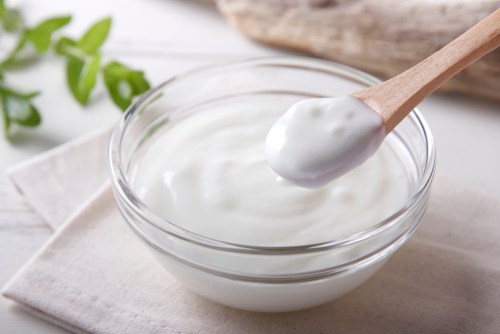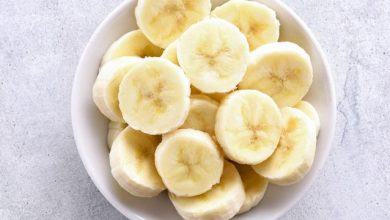THIS BREAKFAST STAPLE COULD BE PUTTING YOUR HEALTH AT RISK AND SHOULD BE TOSSED IMMEDIATELY.

You’ve likely heard it dozens of times before: “Breakfast is the most important meal of the day.” Unfortunately, depending on what your morning meal of choice is made up of, it may also be the most dangerous one for your health, authorities say. A breakfast staple has just been identified as the source of a multi-state outbreak of dangerous bacteria, and experts say you should stop eating this product immediately. Read on to discover if you should be tossing this food from your kitchen now.
A popular yogurt has just been recalled.

On May 12, The Washington State Department of Health (DOH) announced that an E. coli outbreak in multiple counties in Washington had been attributed to consumption of yogurt produced by Pure Eire, which also sells its products under the PCC Community Market label.
Pure Eire has since issued a recall notice for its products due to E. coli contamination, and the DOH announced that the affected PCC Community Market yogurt had been removed from stores, as well. As of June 23, there had been 17 cases of E. coli infections,
10 hospitalizations, and no deaths associated with consumption of the affected yogurts
If you have the yogurt at home, don’t eat it.
While Pure Eire announced that the Washington DOH had randomly tested 12 samples of its products and dubbed them “free from E. coli contamination,” the DOH still cautions against eating the company’s products.
“Anyone who has PCC Community Market or Pure Eire brand yogurt at home should not eat it and should throw it away,” the DOH states. If you have questions about the recalled products, you can contact Pure Eire co-founders Richard Smith at (509) 301-9512 or Jill Smith at (541) 571-1693.
E. coli can cause serious health issues.

According to the Centers for Disease Control and Prevention (CDC), most E. coli infections resolve within a week, and symptoms, which typically include moderate fevers, severe stomach cramps, and diarrhea, typically begin within 10 days of coming into contact with E. coli.
However, E. coli can cause more severe symptoms, including high fevers, bloody diarrhea, and bouts of vomiting so severe they cause dehydration, all of which require medical care. Approximately 5 to 10 percent of individuals who develop an E. coli infection subsequently develop hemolytic uremic syndrome (HUS), which can be fatal; four people exposed to E. coli via the recalled yogurt have developed HUS thus far. If you experience low urinary frequency, a loss of color in your cheeks and eyelids, or extreme fatigue following potential E. coli exposure, contact a medical provider, as these may all be symptoms of HUS.
Since the initial outbreak in Washington, three E. coli infections related to the affected yogurts have also been discovered in Yavapai County, Arizona.
However, the DOH explains that the cases found in Arizona are secondary infections. At least two of these cases are related to close contact between a Washington resident who consumed the affected yogurt and became sick before going to Arizona and individuals in Arizona who did not eat the yogurt. The investigation into the E. coli outbreak is ongoing.





